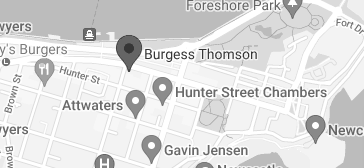Commercial & Industrial Leases
Property & Conveyancing
We're with you every step of the Commercial and Industrial leasing process
For both the Landlord and the tenant in a commercial leasing agreement, the process can be complex and intimidating. It is a major investment decision to lease commercial or industrial property, therefore having legal support is advised. A commercial lease can often be fraught with potential problems. These problems differ in other types of leasing agreements, such as residential and retail. For business owners entering into a commercial or industrial lease, there is risk involved. If something were to go wrong during the leasing process and the tenant were to lose the property, they could also potentially lose their business.
A Commercial lease is differentiated from other types of leases by a number of things. A commercial or industrial premise differs depending on the business’ activity on the property. If any form of buying and selling to the public were to take place on the premises that would be considered retail. Retail leases are protected by different legislation. The distinction between retail and commercial leases is often blurred for businesses who provide a service. As a Business owner, it is wise to seek legal advice to determine what kind of lease is best suited to what the business is offering. The Burgess Thomson team have the knowledge and skill to deliver the best legal advice in relation to what kind of lease your business falls under. We are able to prepare your lease and ensure that you have all the necessary knowledge and documentation.
GET A QUICK QUOTE
Enter your details for an obligation free quote.
Find out more about how we can help Buying Property.
FAQ's
Who pays the cost of preparing a Lease document?
In a typical commercial or industrial lease, the tenant will be required to pay the legal costs involved in the lease transaction. Additional disbursements involved in a lease transaction can include title search fees, registration fees, mortgagee consent and production fees.
Does a commercial lease need to be registered?
Depending upon the terms and length, commercial lease agreements are usually registered of the landlord’s title. Where you are looking to lease will also determine whether your lease will need to be registered.


